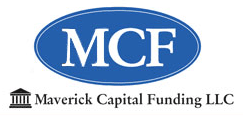Mike Hendries was looking for ways to get revenue based financing and knew his company needed a hefty cash infusion. Without physical assets to borrow against, a bank loan was out of the question; venture capital wasn’t an option, either. “We were too late for angel funding and too early for growth funding,” says Hendries
His solution: borrow $100,000 from Maverick Capital Funding, a New York based financing firm that specializes in revenue-based deals with small businesses poised for big growth. Rather than forfeit equity or repay a fixed monthly amount, Hendries pays Maverick Capital Funding 7 percent of its monthly revenue. The more the company makes in a given month, the faster it repays the debt.
Thanks to the money borrowed, which Hendries sank into sales and marketing, the company turned its business model on its head and was able to substantially grow revenue.
Maverick Capital Funding is among a handful of U.S. firms offering five-, six- and seven-figure revenue or royalty financing to young companies with high gross margins. If you want to pursue this type of financing, here’s what you need to do.
Demonstrate growth potential.
In order to qualify for most revenue based financing, financiers want to see proof of your profit margins and growth potential; the same goes for healthy cash flow. Maverick Capital Funding, for example, wants at least 12 to 24 months of solid financial documentation, with minimum revenue of $15,000 a month.
Show how you’ll use the money.
If you can’t specify how you’ll use the funds, you’re not ready for a revenue or royalty loan. Any lender will want assurance that you’ll use their money for growth-oriented activities and not something frivolous like a trip to Bermuda. The typical Maverick customer uses funds to hire a vice president of sales, launch a marketing initiative, or finish and launch a product.
Make sure that revenue based financing is for you.
A revenue or royalty loan is worthless if repaying it completely hobbles your cash flow. A $75,000 royalty deal with Maverick Capital Funding would make sense if: Sales were exponential, and you needed money for growth aimed initiatives such as moving to a bigger facility and buy packaging in bulk.
Think mentorship.
It’s not just about who can cut you the best deal. You’re going to want an investor that can help you grow your business. Maverick Capital Funding is almost like a VC, but without buying equity.

 Sales Revenue Funding
Sales Revenue Funding What’s a Business Cash Advance?
What’s a Business Cash Advance? Advance Calculator
Advance Calculator Maverick VS Your Bank
Maverick VS Your Bank Unsecured Funding
Unsecured Funding
